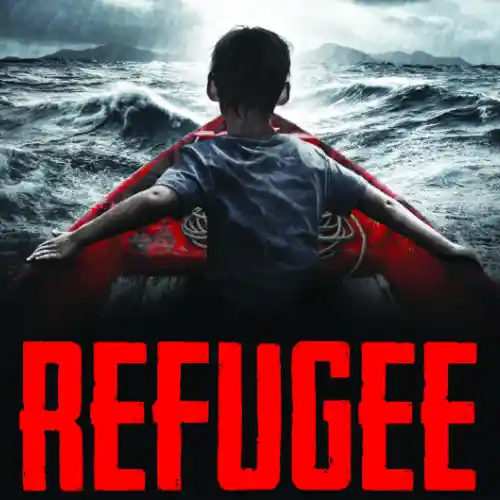This was the coda to Isabel’s song.
She stood with a trumpet in hand—a gift from Uncle Guillermo, Lito’s brother. She wasn’t on a sidewalk in Havana, but in a classroom in Miami.
It was her second week of school, and the first day of band class. The day they auditioned for their places in the orchestra.
Isabel twiddled her fingers on the trumpet’s keys. She couldn’t believe she was standing here, in this classroom, less than a month after stumbling onto Miami Beach with her baby brother in her arms.
So much had changed, so quickly. After her mother and brother had been taken to the hospital and given a clean bill of health, Lito’s brother, Guillermo, took them in until they found a little apartment of their own. His apartment was smaller than their house in Cuba, and not near the beach, but if Isabel never saw the ocean again that was fine by her.
Little Mariano was at home, getting fat and happy along with the other babies Mami was paid to watch at the little in-house daycare she ran. Papi had gotten a job driving a taxi and was saving up for a car of their own.
Señora Castillo planned to go back to school to become an American
lawyer, and Señor Castillo was already talking to someone about getting a loan to open a restaurant. Luis got work in a little bodega, and Amara in a dress shop, and once Amara became a US citizen she planned to become a Miami police officer. They were going to be married in the winter.
And Isabel, she had started the sixth grade. It was hard because she didn’t speak English yet. But there were other Cuban kids there, lots more Cuban kids, a few who had come to America by boat, like her, but more who had been born here, Cubanoamericanos who still spoke Spanish at home. Isabel had quickly made friends, girls and boys who were warm and welcoming, and she knew she would learn to speak English like her teachers soon enough. She was practicing by watching lots and lots of television. (At least that’s what she told her parents.) She would learn, and in the meantime math and Spanish and art class all still made sense.
And so did music.
Señor Villanueva and the other students waited for her to play. Isabel had practiced for weeks for this moment. At first she couldn’t decide what song to play, but then, while watching a baseball game with her father, she had figured it out.
Isabel adjusted Iván’s Industriales baseball cap on her head, took a deep breath, and began to play “The Star-Spangled Banner,” the national anthem of the United States. But she didn’t play it like she’d heard it at baseball games on the television. She played it like a son cubano, offbeat with a guajeo melody.
Isabel played it salsa for Iván, lost at sea, and for Lito, back in Cuba.
She played it salsa for her mother and her father, who had left their homeland, and for her little brother, Mariano, who would never know the streets of Havana the way she had. And Isabel played it salsa for herself, so she would never forget where she came from. Who she was.
Soon, Isabel had everyone in the room clapping along to the beat with her, but as she played she heard a different rhythm, a beat underneath the one everyone else was clapping to. Her foot tapped in time with the hidden cadence, and she realized with a thrill that she was finally hearing it.
She was finally counting clave.
Lito was wrong. She didn’t have to be in Havana to hear it. To feel it.
She had brought Cuba with her to Miami.
Isabel finished with a flourish, and Señor Villaneuva and the other students cheered. She thought she might cry for happiness, but she bit back her tears. She had done enough crying over Iván and Lito.
The song of her leaving Cuba to find a new home was over.
Today it was time to start a new song.

